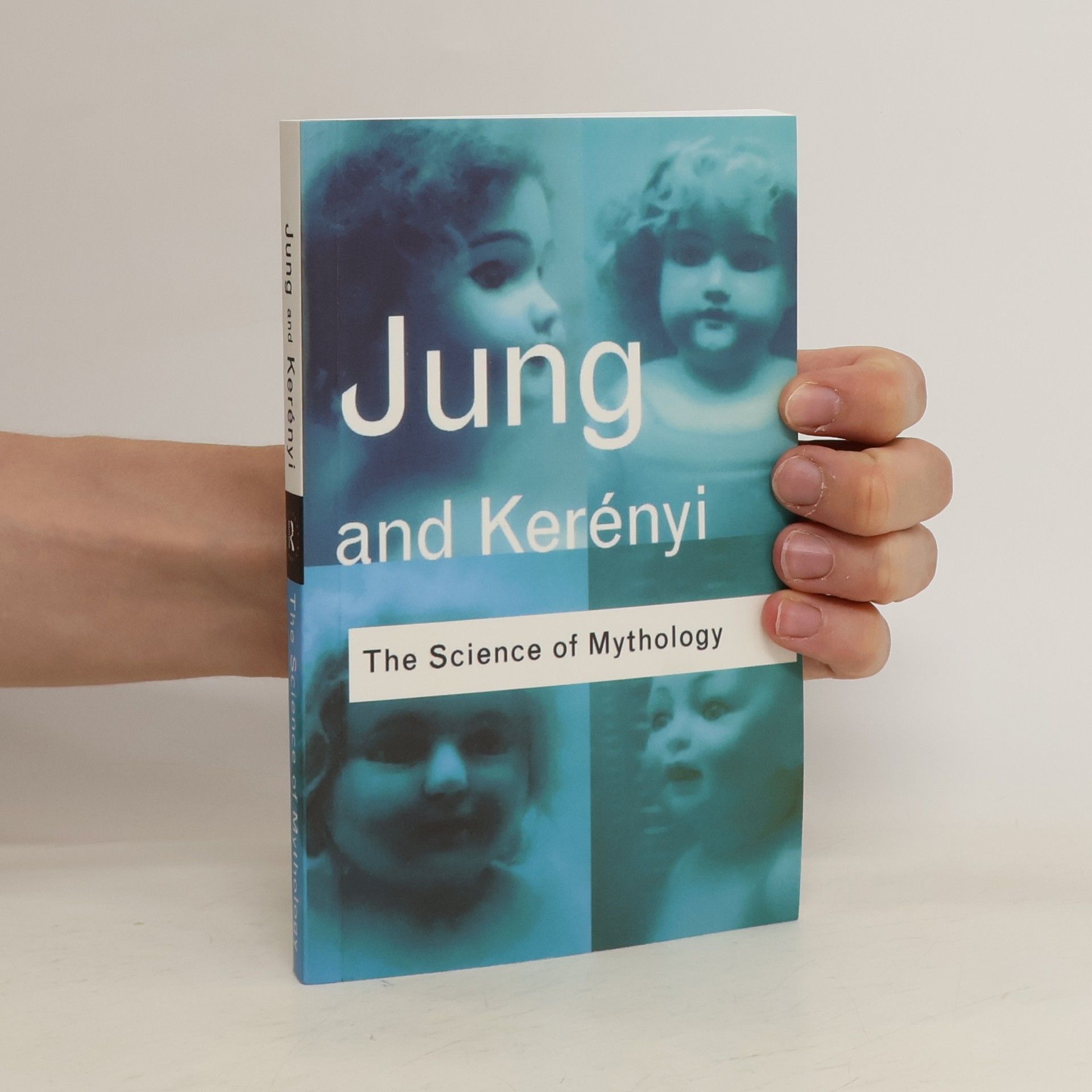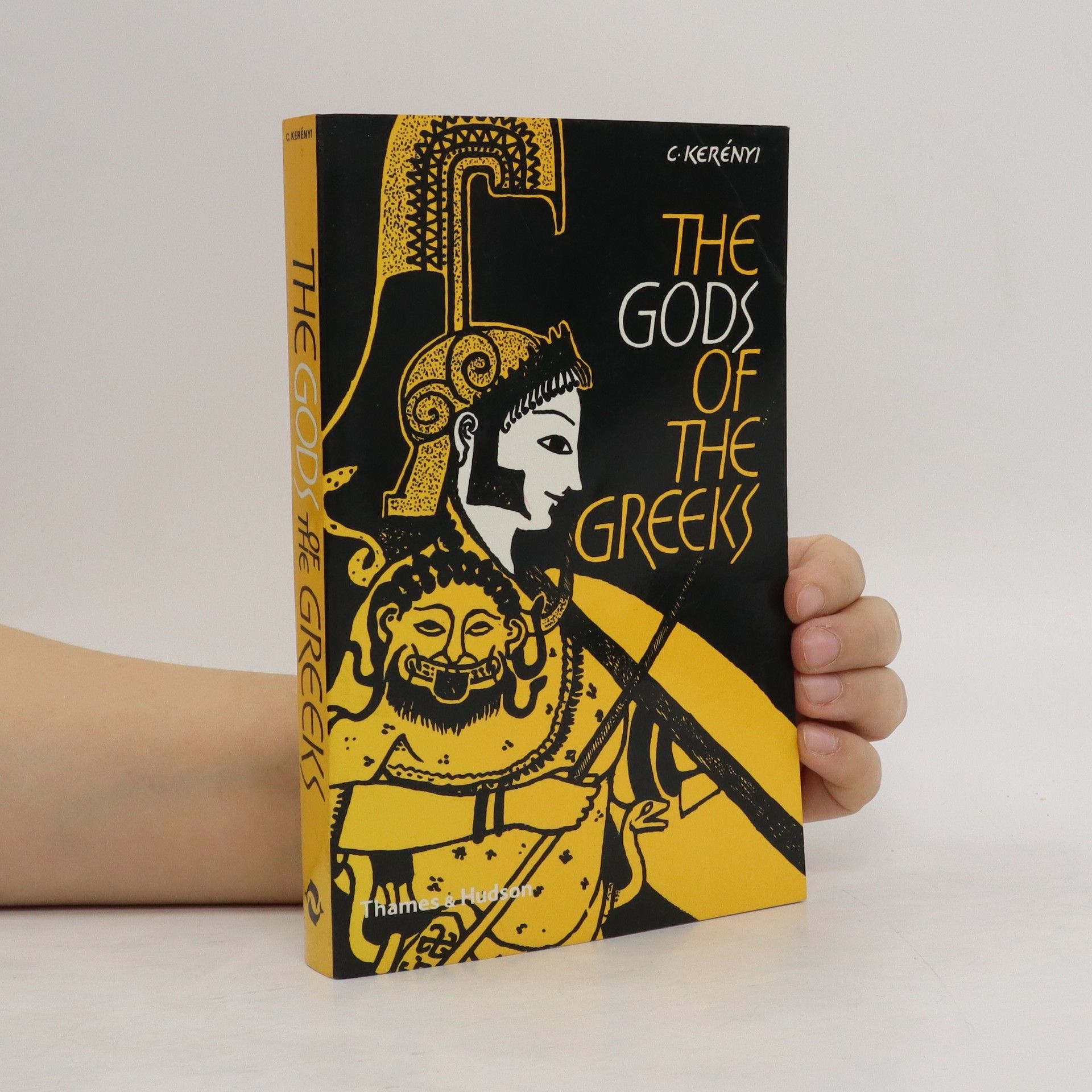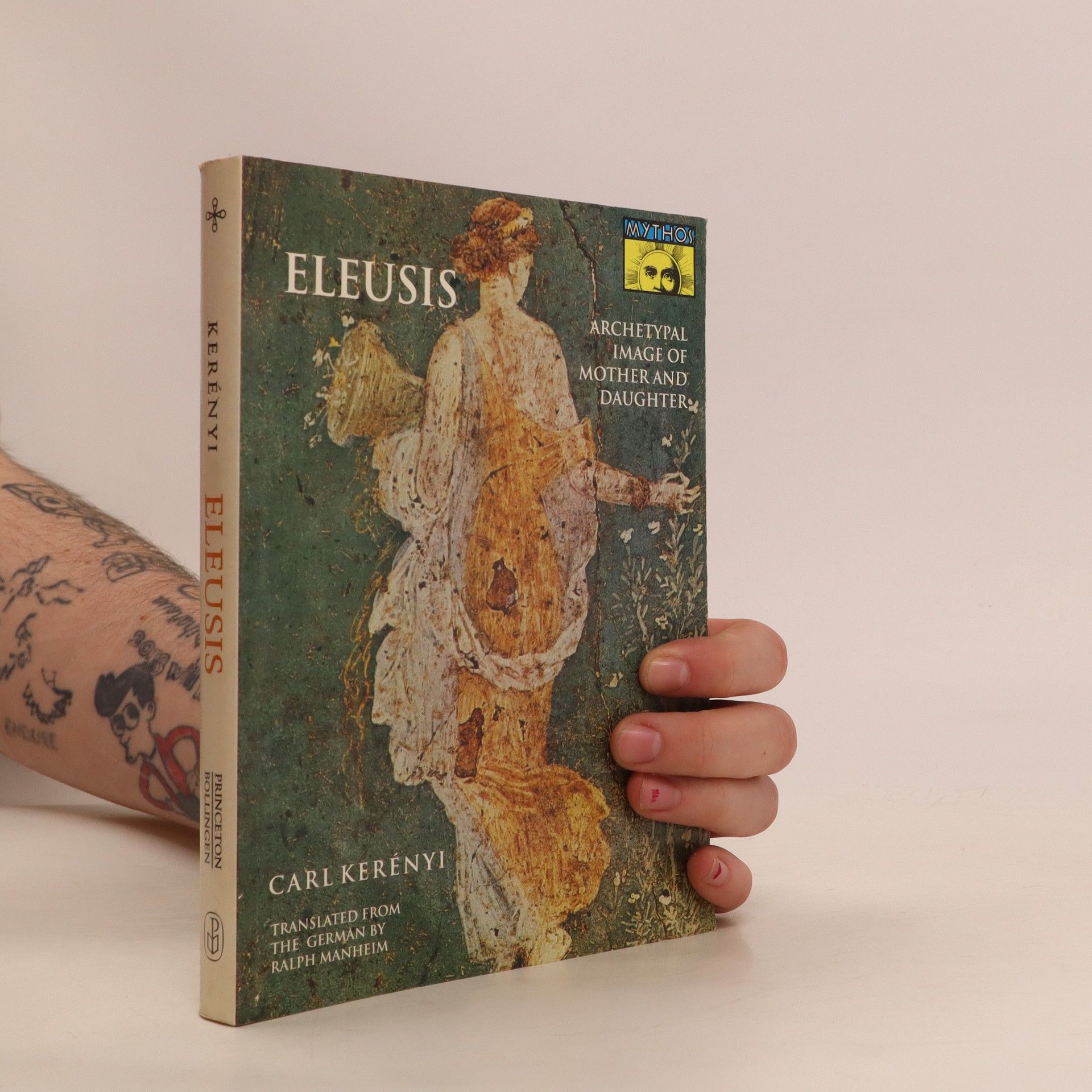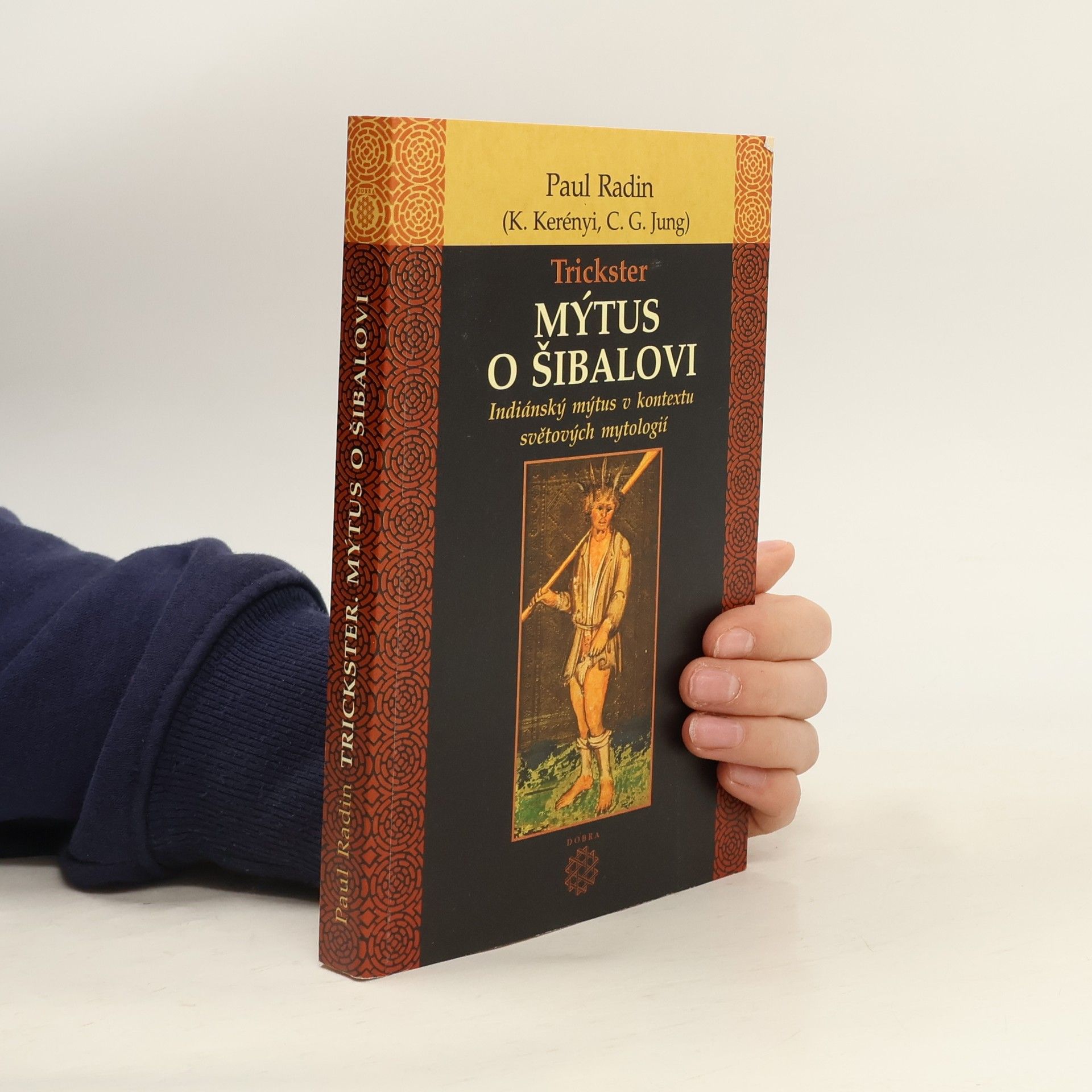Dionysos is deeply embedded in the cultural and natural landscape of Greece and Italy, representing the essence of life through myth and ritual. Carl Kerényi, a prominent mythologist, explores the evolution of Dionysian religion from its Minoan origins to its transformation into a universal faith during late antiquity under Roman influence. Drawing from extensive Greek literary and archaeological sources, he illustrates the rich tapestry of Dionysian worship, emphasizing the foundational role of myth in understanding this ancient tradition.
Karl Kerényi Livres
Károly Kerényi fut l'un des fondateurs des études modernes sur la mythologie grecque. Son œuvre se caractérise par une profonde compréhension des forces archétypales et des significations symboliques enfouies dans les mythes. L'approche de Kerényi éclaire les questions humaines intemporelles à travers des récits anciens, révélant leur impact durable sur la psyché et la culture humaines. Son érudition novatrice continue d'inspirer et de façonner notre façon de comprendre et d'interpréter les mythes classiques.







Exploring the myth of Prometheus, this work delves into the themes of suffering and transformation, illustrating how the tale reflects profound truths about human existence. Carl Kerényi traces the evolution of the myth from ancient Greek sources like Hesiod and Aeschylus to its reinterpretation in Romantic poetry by figures such as Goethe and Shelley. Additionally, the analysis incorporates Jungian psychology, presenting Prometheus as an archetype of human daring and the journey from pain to sacrifice, highlighting its lasting impact on Western thought.
The Gods of the Greeks
- 304pages
- 11 heures de lecture
Drawing on a wealth of sources, from Hesiod to Pausanias and from the Orphic Hymns to Proclus, Professor Kerényi provides a clear and scholarly exposition of all the most important Greek myths. After a brief introduction, the complex genealogies of the gods lead him from the begettings of the Titans and from Aphrodite under all her titles and aspects, to Apollo, Hermes and the reign of Zeus, touching upon the Affairs of Pan, nymphs, satyrs, cosmogonies and the birth of mankind, until he reaches the ineffable mystery of Dionysos. The lively and highly readable narrative is complemented by an appendix of detailed references to all the original texts and a fine selection of illustrations taken from vase paintings. 26 black-and-white illustrations
Heroes of the Greeks.
- 440pages
- 16 heures de lecture
Records the histories of ancient warriors and demi-gods depicted in classical mythology and art treasures
The Science of Mythology
- 240pages
- 9 heures de lecture
Science of Mythology provides an account of the meaning and the purpose of mythic themes that is linked to modern life: the heroic battles between good and evil of yore are still played out, reflected in contemporary fears. schovat popis
Oedipus Variations: Studies in Literature and Psychoanalysis
- 102pages
- 4 heures de lecture
A deeper, richer portrait of Oedipus, the most famous figure in all of Greek tragedy and the (unconscious?!) hero of the basic myth of psychoanalysis by two giants in the fields of mythology and psychology: the eminent mythographer Karl Kerényi and the founder of archetypal psychology, James Hillman. Kerényi widens the Oedipus myth's cultural context by introducing unusual dramatic versions that played in Rome, Paris, Vienna, and London. His authoritative and detailed essays release wonderful insights for even the most casual reader. Hillman takes on Father Freud and his Oedipus complex (i.e., every son wants to kill his father and marry his mother). He inverts the emphasis and asks, Why do fathers kill their sons? Hillman brilliantly proposes that the madness of Oedipus may lie less in his overt crimes than in his-and therapy's-single-minded focus upon "figuring out" one's true identity through a remembering of the past. This relentless search for Oedipus to "know himself" is still with us, still blinds us, still tries to turn people in therapy into Oedipus. Yet Hillman also shows us that, in addition to the curse, murder, incest, and disease, the myth of Oedipus contains beauty, blessing, love, and loyalty.
Mytologie Řeků. I, Příběhy bohů a lidí
- 247pages
- 9 heures de lecture
První svazek řecké mytologie. O této knize jednoho z velkých historiků řeckého náboženství napsal Thomas Mann: "Je to pravý poklad, překypující příběhy, které zde se vší přesností a ve všech jejich variantách podává znalec, jakého hned tak nenajdete."
Trickster: Mýtus o Šibalovi
- 217pages
- 8 heures de lecture
Mýtus o Šibalovi, který je jak tvořitelem, tak ničitetelem, jak podvodníkem, tak podváděným, jak podčlověkem, tak nadčlověkem - je jedním z nejstarších a nejuniverzálnějších vyjádření člověka. Původní indiánské mýty týkající se archetypické postavy Šibala či Blázna, jsou obsahem jedinečné studie indiánské mytologie se zaměřením na tuto postavu, její srovnání s postavami antické mytologie a její psychologický rozbor. Autor je jedním z vůdčích antropologů zabývajících se indiány. Je pravděpodobně nejlepším znalcem indiánských mýtů.
Mytologie Řeků II
- 349pages
- 13 heures de lecture
Interpretace, která odhaluje v řeckých mýtech kulturní pralátku lidské civilizace.



